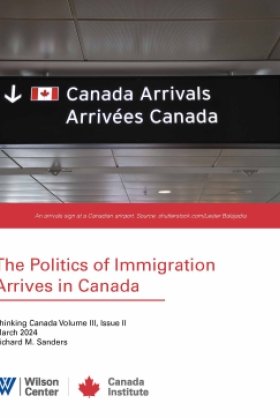New Scholarship in Race and Ethnicity -- Creating Synergy: Top-Down Policymaking and Immigrant Community Banking
Overview
Immigrants to the United States face the challenge of incorporation into the American polity, and the nation in turn faces the challenge of incorporating the newcomers. The challenges, however, go beyond the obvious political ones. Noting that "social rights can precede the acquisition of political rights for immigrants," Prof. Alethia Jones discussed the linkage between social rights and a sense of citizenship.
Speaking at the tenth program in the Division of U.S. Studies' series on new scholarship in race and ethnicity, Jones drew on her examination of the Miami Haitian working-class immigrant community and its use of an "esso," an informal banking practice. The practice, also known as a "rotating credit association" (RoSCA), in which each association member pays a set amount of money each week and can eventually withdraw it in a lump sum to be used for major purchases, has been and remains part of the historical fabric of many American immigrant cultures. The Miami "esso" system works as it did in Haiti, relying on trust and reputation to ensure that participants live up to their obligations under it. Its successful operation depends on reciprocity, mutuality and trust, which Jones described as "the building blocks of social capital and effective civic action." But, as Jones noted, "esso participation, for all its virtues, is not a recognized social and economic asset in the formal economy."
The Little Haiti Housing Association (LHHA), a local non-profit housing and community development organization, realized in the mid-1990s that the accumulated capital of the "esso" could be used for asset building – in this case, purchasing a home. LHHA approached local banks with the idea, but the banks declined to offer a mortgage loan when the potential home-owner could offer no capital other than his or her participation in the informal "esso." LHHA then turned to Fannie Mae as a possible underwriter of the loans. The timing was fortuitous, because under pressure from Congress and the passage of the Federal Housing Enterprises Financial Safety and Soundness Act of 1992, Fannie Mae recognized that it had to do more to expand entry into the housing market for low income populations. Fannie Mae therefore agreed to underwrite the mortgages. The result was a synergy of public and private interests: the pressure brought by low-income immigrants through NGOs such as LHHA, the response from Congress, and the growing realization by the lending industry that immigrants will be a major element in the housing market. The result was also the integration of the Haitian immigrants into the economic life of the country and creation of their new stake in the nation.
Prof. Helen Ingram praised Jones' work for telling the story of the way in which federal housing policy, which has historically privileged bankers and their notions of risk, was altered to privilege consumers utilizing non-traditional modes of capital accumulation. She commented that many conservatives today claim that government action can be harmful in replacing social networks. Here, however, was an example of a reciprocal relationship between government and social networks, with governmental policy drawing upon and thereby reinforcing an informal institution.
Prof. Ann Chih Lin, seeing the success of LHHA's effort as the result of congressional legislation rather than of immigrant pressure, wondered whether the story was about a situation in which political mobilization was unnecessary and might well have been unsuccessful. Power, she argued, may come from fitting into the needs of mainstream institutions, which was what LHHA in effect did here. In the process, immigrants were incorporated into a mainstream institution, to the benefit of that institution: they were socialized into the use of banks, and Lin hypothesized that many of them would turn to savings accounts and other bank services. Finally, she mused about the impetus for the congressional legislation. Is it possible, she asked, that the legislation resulted from the agitation of groups of citizens, such as African Americans, who, with no "essos" focused on home ownership, were much lesser beneficiaries?
Drafted by Acacia Reed and Philippa Strum
Philippa Strum, Director, Division of U.S. Studies 202-691-4147
Thank you for your interest in this event. Please send any feedback or questions to our Events staff.










